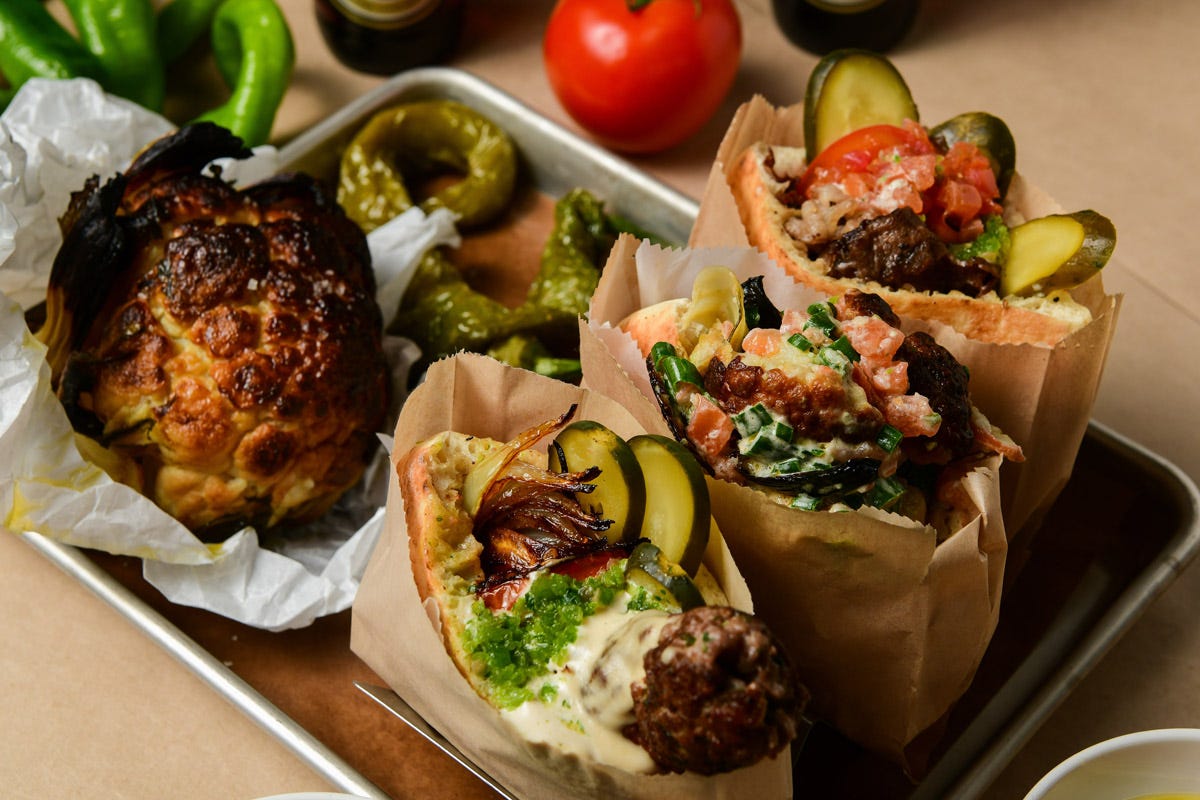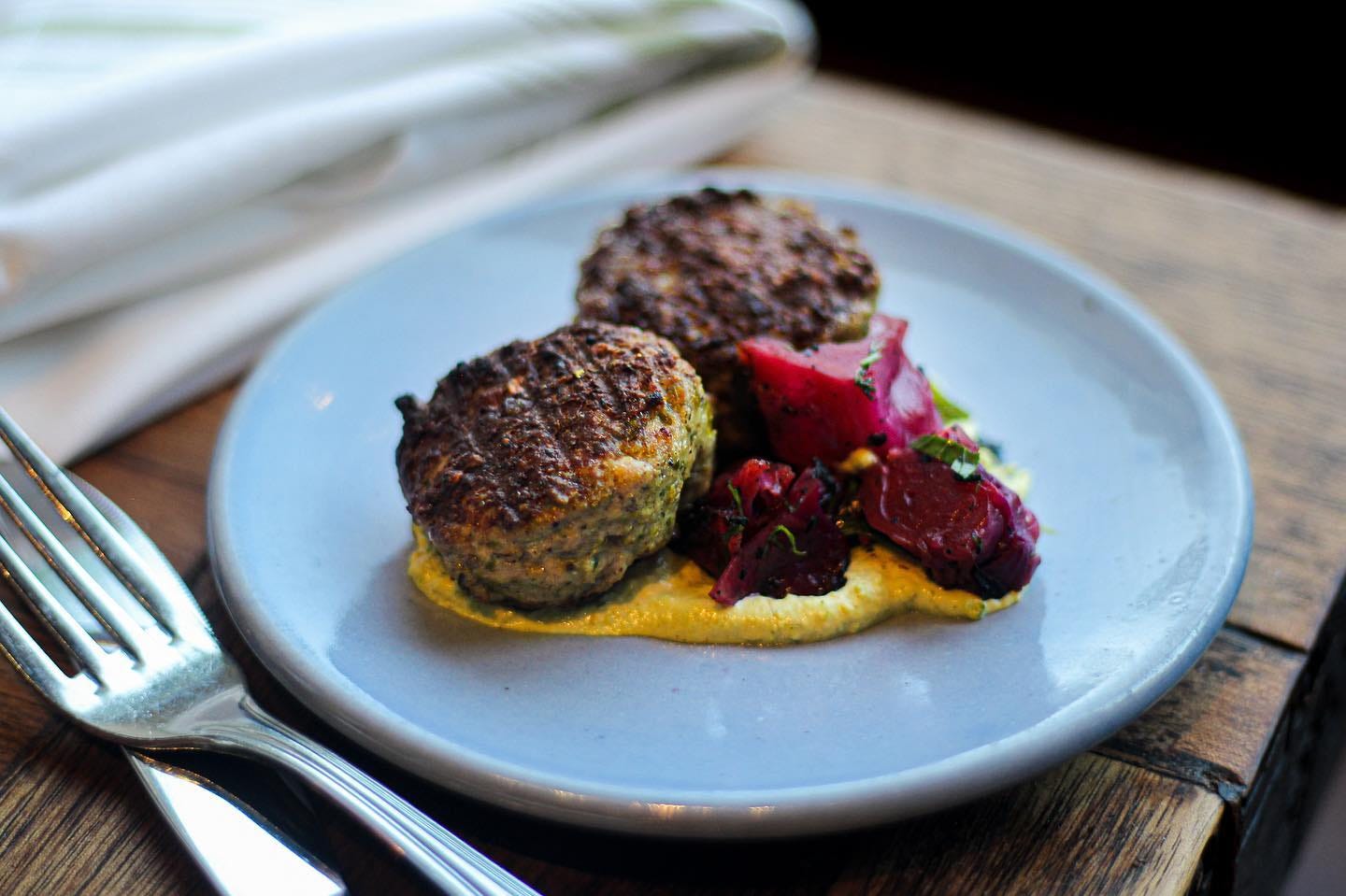Thailand can teach Israel about nation branding.
If Israel wants to be known not just for the tiring Israeli-Palestinian conflict, but for its boundless creativity, it might do well to borrow a page or two from Thailand’s cookbook.

Please consider supporting our mission to help everyone better understand and become smarter about the Jewish world. A gift of any amount helps keep our platform free of advertising and accessible to all.
You can also listen to the podcast version of this essay on Apple Podcasts, Google Podcasts, and Spotify.
Launched in 2002, the Global Thai Program was an initiative led by Thailand’s government.
The program provided financial incentives, including loans through the Export-Import Bank of Thailand, to Thai nationals seeking to open restaurants overseas. Additionally, it offered training programs and resources to ensure the authenticity and quality of Thai cuisine served abroad.
The primary goals of the program were to promote Thai culture and cuisine globally, boost Thailand’s agricultural and food exports, increase foreign income through overseas transactions, and enhance Thailand's image and soft power on the international stage.
As a result of these efforts, the number of Thai restaurants worldwide grew significantly, with reports indicating an increase from approximately 5,500 in 2002 to over 15,000 by 2018. In 2024, Thailand welcomed over 35.5 million foreign tourists, up from 11.13 million in 2002 — a 219-percent increase. Tourism became one of Thailand’s most important industries, accounting for nearly 20 percent of GDP in peak years.
In a world increasingly shaped by perception, image matters. For countries, this is not just about tourism campaigns or diplomatic summits; it’s about building an identity in the minds of global citizens that shapes everything from consumer preferences to international alliances.
Thailand has quietly mastered the art of nation branding. And surprisingly, it offers a powerful lesson for Israel, another small but influential country with a very different global reputation.
Israel is a nation that punches far above its weight. It leads in tech innovation, agriculture, medicine, military defense, and humanitarian aid. It’s the ancestral homeland of the Jewish People and a modern miracle of democratic endurance. And yet, its global brand — particularly in Western media and elite discourse — remains fraught, misunderstood, and under constant siege.
To be sure, Israel does have a story to tell. But too often, it’s told reactively, defensively, or politically, framed by conflict rather than culture, news cycles rather than narratives, crisis management rather than brand strategy.
Where Thailand exported pad Thai, Israel is often left exporting press releases.
Thailand’s nation branding success was not just a function of cuisine; it was a matter of consistency, coordination, and investment in soft power. It treated cultural diplomacy as infrastructure, not a side hustle. It gave ordinary Thais the means to become unofficial ambassadors of their country’s image, from Paris to Toronto to Cape Town.
Israel could do the same by promoting Israeli cuisine as the gateway to identity. Let the world fall in love with Israeli flavors and culinary creativity before they ever encounter the complexity.
Just as Thailand leveraged its global diaspora to spread Thai food, Israel could empower Israelis abroad and Jewish communities as proactive foodies, not just political advocates. Imagine a “Taste of Israel” global culinary initiative, with certified Israeli restaurants abroad showcasing the country’s diverse flavors — from Moroccan Jews, to Yemenite Jews, to Iraqi Jews, to Persian Jews, to Polish Jews, to Romanian Jews, to Georgian Jews, to Ethiopian Jews.
To understand the soul of Israeli identity — and why its branding should start with cuisine, not conflict — we have to go back to the beginning. The modern State of Israel was never just a geopolitical project. It was, from the start, a grand civilizational mission: to gather the exiles of the Jewish People and build a sovereign society rooted in ancient values, modern ideals, and shared survival.

Since its founding in 1948, Israel has absorbed Jews from over 100 countries, from the sand-swept cities of Morocco to the snowy streets of Moscow, from the villages of Ethiopia to the suburbs of New York. Every wave of immigration came with its own language, music, rituals, and — yes — recipes.
This process was messy, miraculous, and entirely unique. Israel had no choice but to become multicultural. It had to forge unity out of fragmentation. That’s why Israeli culture is not monocultural, but mosaic; a living synthesis of Sephardi, Ashkenazi, Mizrahi, Beta Israel, Bene Israel, Bukharian, Georgian, and Yemenite traditions, constantly negotiating, overlapping, and evolving.
Israeli society didn’t just tolerate difference; it was born from it. What other country celebrates both Mimouna1 and Holocaust Remembrance Day, Passover seders in Russian and Hebrew, and Shabbat dinners that include couscous, gefilte fish, and Ethiopian injera — all on the same table?
This isn’t just history. It’s brand DNA.
And this diversity lives most vividly in Israeli cuisine. It is not a simple offering, but an entire conversation on a plate. It is the edible evidence of the Jewish People’s return from exile — blending North African spice, Eastern European comfort, Persian herbs, Balkan street food, Levantine classics, Yemenite fire, and Ethiopian depth. All of it shaped and reshaped by the abundance of the Mediterranean and the innovation of a young, experimental nation.
It’s hard to name another country where you might eat Iraqi kubbeh soup for lunch, Moroccan fish for dinner, and Hungarian flodni for dessert — often made by three generations of the same family. Or where hummus and shakshuka are elevated to the level of national icons, not in contradiction with, but alongside sabich, schnitzel, and sabra-grown avocados.
This culinary richness reflects the deeper truth of Israeli society: It is diverse, layered, complex, and united not by sameness but by shared purpose. Every Israeli family recipe is also a footnote in Jewish history. Every Shabbat dinner table is both a personal memory and a national ritual. If marketed correctly, Israeli cuisine could be Israel’s global calling card — a cultural bridge that bypasses politics and invites connection.
The good news? Israeli cuisine already is winning abroad, just not always under the Israeli flag.
Globally, Israeli chefs and restaurants have earned acclaim at the highest levels. Eyal Shani, once known only in Tel Aviv, now runs hip restaurants in New York, Paris, Vienna, and Melbourne. His pita-focused Miznon is cultishly loved, and his other ventures are often celebrated for their raw, poetic embrace of Israeli street food.
Assaf Granit, another Israeli culinary heavyweight, operates award-winning restaurants in Jerusalem, London (such as Coal Office), and Paris (Shabour), with a Michelin star under his belt. His style merges bold Levantine flavors with high-end European technique, an edible metaphor for Israel’s own East-West fusion.

In the United States, Michael Solomonov of Philadelphia’s Zahav has won multiple James Beard awards, introducing American audiences to pomegranate-glazed lamb, laffa, and tahini like they were haute cuisine — which, in his hands, they are. Even in cities not known for their Jewish or Israeli scenes, Israeli-inspired restaurants are popping up, often led by non-Israelis inspired by the vibrancy of Israeli food culture.
In short: Israeli cuisine is beloved. Israeli chefs are cool. Israeli food is in demand.
One of the most striking features of Israeli cuisine (and by extension, Israeli culture), is its seamless fusion of the ancient and the avant-garde. In few places on earth do Bronze Age grains appear on plates next to 3D-printed lamb cutlets, or 2,000-year-old spice blends flavor dishes garnished with lab-grown herbs grown under LED lights in urban rooftops.
Israel isn’t just preserving tradition; it’s remixing it, boldly and unapologetically. This is what makes Israeli fusion food unlike any other: It’s not just cross-cultural, it’s cross-temporal.
At restaurants like OCD in Tel Aviv, diners enjoy meticulously crafted tasting menus that might include freekeh (a roasted green wheat first consumed in biblical times) prepared sous-vide or topped with fermented mango espuma. At Machneyuda in Jerusalem, ancient Arab, Kurdish, and Sephardi influences are served with craft cocktails and punk rock energy. Even humble falafel is reinvented — as sliders, as ice cream, as haute-cuisine amuse-bouches.
Israeli chefs are culinary time-travelers. They borrow from the past not to replicate it, but to reinterpret it through the lens of now. Why? Because Israeli culture itself is built on that same dynamic. This is a country where the Book of Isaiah is read alongside Waze directions to synagogue. Where the priestly blessing is performed in the shadow of Wi-Fi routers. Where archeology isn't nostalgia; it’s a live feed into identity.
This culinary ethos of ancient-modern fusion resonates with global diners, especially in a world hungry for authenticity and novelty. And if nation branding is ultimately about story, then Israeli fusion food might be the most digestible and delightful storytelling platform Israel has.
Let’s be clear, though: Nation branding is not about whitewashing reality. Thailand still faces internal challenges: political upheavals, inequality, environmental degradation. But its global reputation is not defined by these issues. That’s because Thailand understands a powerful truth: The story you tell about yourself shapes the story others tell about you.
Israel, a country with an even more compelling story — of rebirth, resilience, diversity, and innovation — must learn to tell it in ways that are emotional, cultural, human, and consistent. Not just in response to crisis, but as a daily act of soft power.
If Israel wants to be known not just for the tiring Israeli-Palestinian conflict, but for its boundless creativity (and if it wants the world to see the people, not just the politics), it might do well to borrow a page or two from Thailand’s cookbook.
Mimouna is a traditional Maghrebi Jewish celebration dinner that takes place the day after Passover.


Not many people know that Fish and Chips comes out of the Jewish community and fewer know anything about the particular community that created it, the Chuts of London. An interesting group, well worth reading about.
If Thailand had every one of its Asian neighbors either try to murder it's citizens or relentlessly demand they give away half their country to a death cult and if the vast majority of the world accepted the big lie that Thailand and not the death cult is responsible for the conflict, I doubt the exporting of Pad Thai would do much to change anyone's mind.